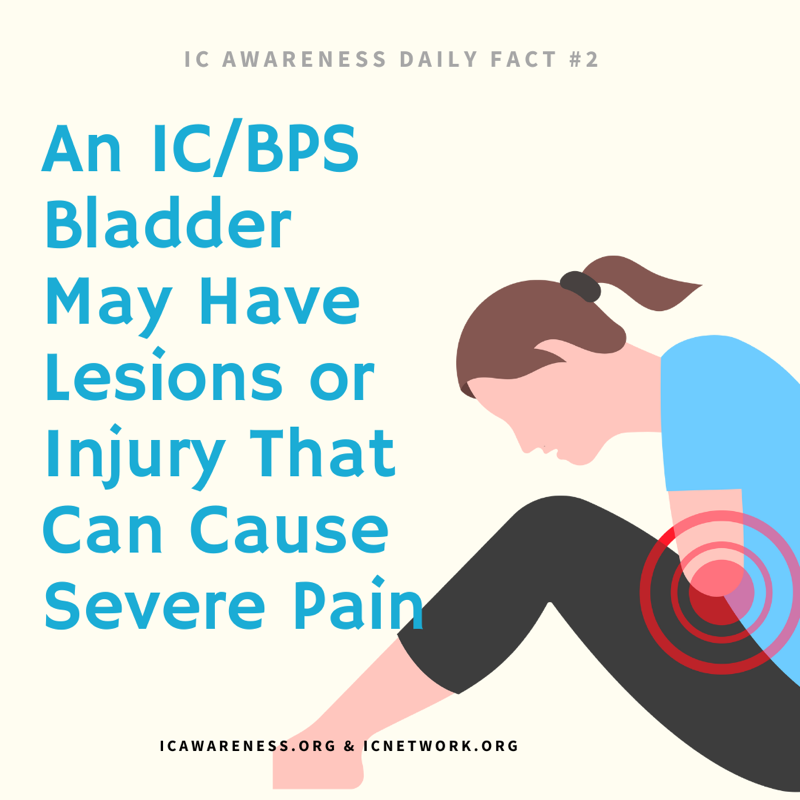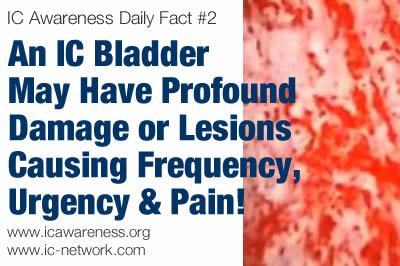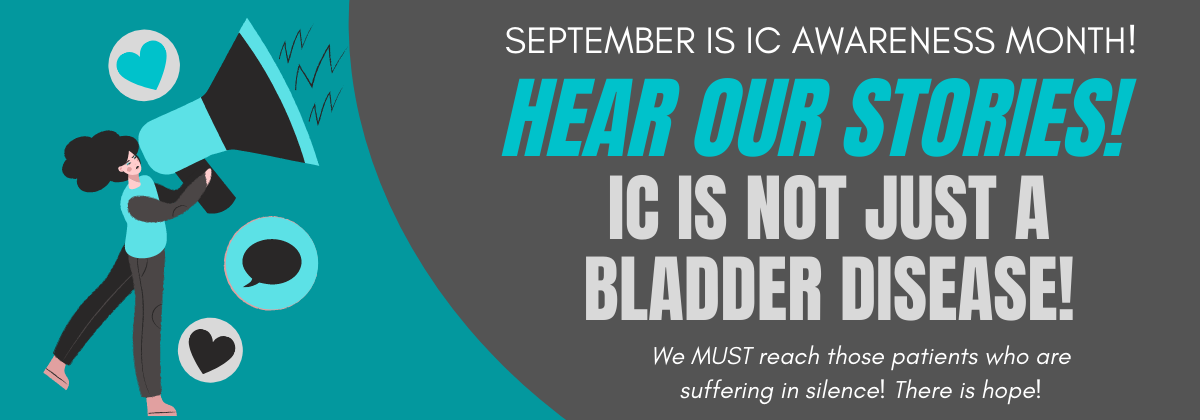
TikTok Video
@icnetworkjillIC Awareness Daily Fact 2 – 5 to 10 percent of IC patients have Hunner’s lesions and they often suffer for years. There is hope. Learn about treatments at icnetwork.org♬ original sound – IC Network
Hunner’s Lesions
Hunner’s lesions represent a distinct, small patient group with an estimated 5 – 10% of patients diagnosed with IC/BPS. Lesions (aka Hunner’s ulcers) are areas of intense inflammation on the bladder wall that often bleed profusely. Patients can experience often severe urinary frequency, urgency and pain.
What causes Hunner’s lesions?
One of the great mysteries of IC, research studies have found the polyoma and Epstein Barr virus in the urine of patients with Hunner’s lesions suggesting that it could be a chronic viral infection. Learn about viral research here!
In Summer of 2021, a fascinating case study was published featuring a woman with severe Hunner’s lesion disease and a severe prolapse. When surgery was performed to repair the prolapse, they found that her uterus had detached on one side, allowing the back side of the uterus to face towards the front, and the front facing the back, known as posterior fornix syndrome. Remarkably, when the proper position of the uterus was restored, her Hunner’s lesions healed.
How are lesions treated?
The 2022 AUA Guidelines for the diagnosis and treatment of IC/BPS recommend that lesions be treated immediately with lesion specific therapy, such as: fulguration, laser therapy or steroid injection. Learn more about lesion treatment here!
HL Survival Tips
- DIET MODIFICATION IS A MUST – Because patients have open wounds on their bladder, what you eat and drink has the potential of irritating those wounds and triggering pain. Learn more about diet here!
- Hunner’s lesions are not generally responsive to traditional IC therapies, such as oral medications or bladder instillations.
- Hunner’s lesions can recur. If you notice your symptoms worsening over time, you may need to have them treated again.
- Always ask your doctor what treatment he plans to use if you are having a hydrodistention. If they say “None,” ask why not? Generally, lesions are treated at the time they are discovered. If not, the patient will have to undergo yet another lesion to have them treated correctly. It might be worth getting a second opinion first to avoid the cost and discomfort of having a second procedure performed.
Suggested Reading
- American Urology Association Guidelines for IC/BPS (Updated in 2022)
- Hunner’s lesion patient unexpected “cured” with ligament repair ICN Blog – 07/21
- MAPP Research Network finds viral infection in some IC patients. ICN Blog – 06/20
- Hunner’s lesions should be considered a separate disease ICN Blog – 11/19
- IC 101: It’s Not Just A Bladder Disease (Updated in 2021)
Created: September 2013 – jho
Last Updated; September 1, 2023 – jho
Past Imagery

